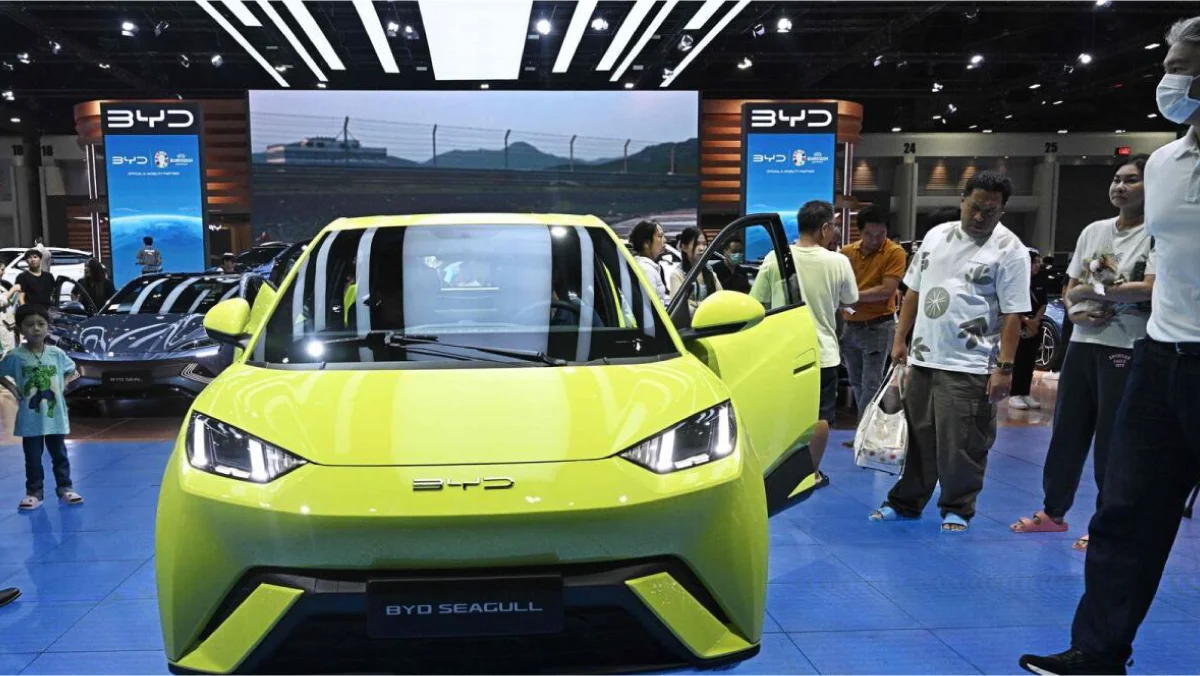Necessary Always Active
Necessary cookies are required to enable the basic features of this site, such as providing secure log-in or adjusting your consent preferences. These cookies do not store any personally identifiable data.
|
||||||
|
||||||
|
||||||
|

A recent report shows that Chinese electric vehicle (EV) maker, BYD, could beat Tesla in EV battery sales this year. Last year, BYD beat Tesla in the production of electric vehicles. However, the EV maker lost the EV sales spot to Tesla in quarter one.
The Counterpoint Research report also shows that BYD’s market share is expected to increase this year.
“This shift underscores the dynamic nature of the global EV market,” Counterpoint analysts said.
According to CNBC, BYD’s EV battery sales rose close to 21% in quarter two to reach 426,039 units. Tesla’s sales dropped 4.8% over the same period to 443,956 units.
In 2023, BYD beat Tesla’s crown in EV production. The EV maker produced over 3 million units of battery-powered and hybrid cars compared to Tesla’s 1.84 million battery-electric units.
Out of the 3 million units that BYD produced, 1.4 million units were hybrid while 1.6 million were powered by battery only. This places Tesla at the top position when it comes to production of battery-electric vehicles. Additionally, BYD lost the largest EV supplier title to Tesla.
According to the Counterpoint report, China BYD EV manufacturers continue to dominate the battery-electric vehicle market. In 2024, BEV sales in China are expected to be four times higher than those in North America.
The report also projects that China’s global BEV market share will continue to surpass the 50% mark until 2027. The country’s BEV sales are expected to surpass those of Europe and North America combined in 2030.
But as BYD takes on global EV giants, it will have to contend with high European Union (EU) tariffs. In June, the EU said it would increase tariffs for China’s electric vehicle industry giants. The move is intended to address the foreseeable and imminent EU industry injury.
The EU imposed a 10% standard duty on all imported electric vehicles. In addition to this duty, BYD will have to pay 17.4% in tariffs and a 20% duty for Geely.
“EU’s new tariff rates for Chinese EVs aim to level the playing field for European EV manufacturers, which are struggling to compete with lower-priced Chinese imports. These tariffs might push Chinese automakers towards emerging markets like the Middle East and Africa, Latin America, Southeast Asia, Australia and New Zealand,” Liz Lee, Associate Director at Counterpoint Research said.
The Counterpoint Research report projects that globally, BEV sales could hit the 10 million mark by the end of 2024. This sales growth will be driven by a decline in the use of internal combustion engine cars. BEV sales growth will also be fueled by efforts to improve the affordability and efficiency of electric vehicles and electric vehicle batteries.